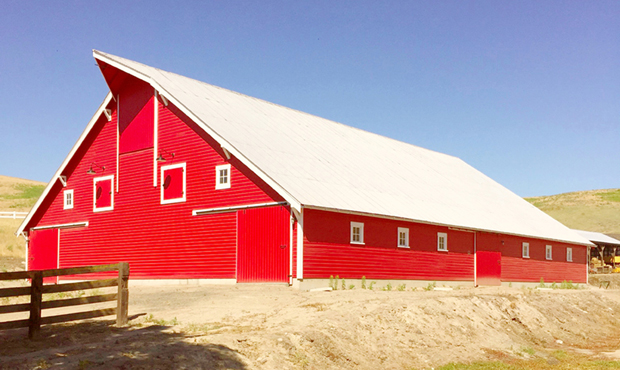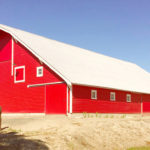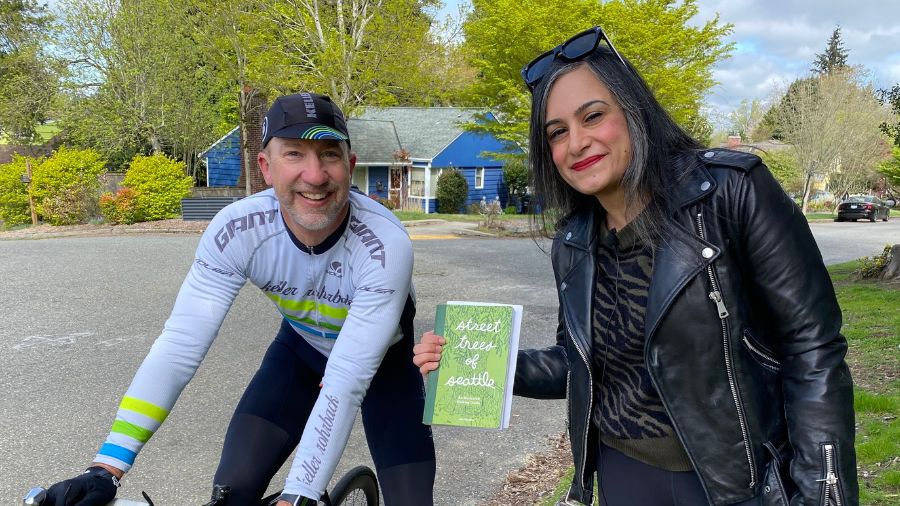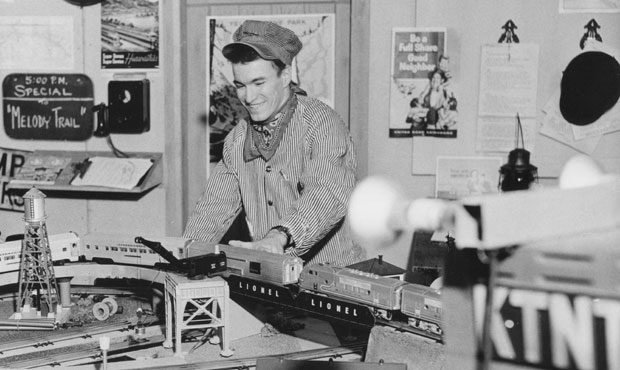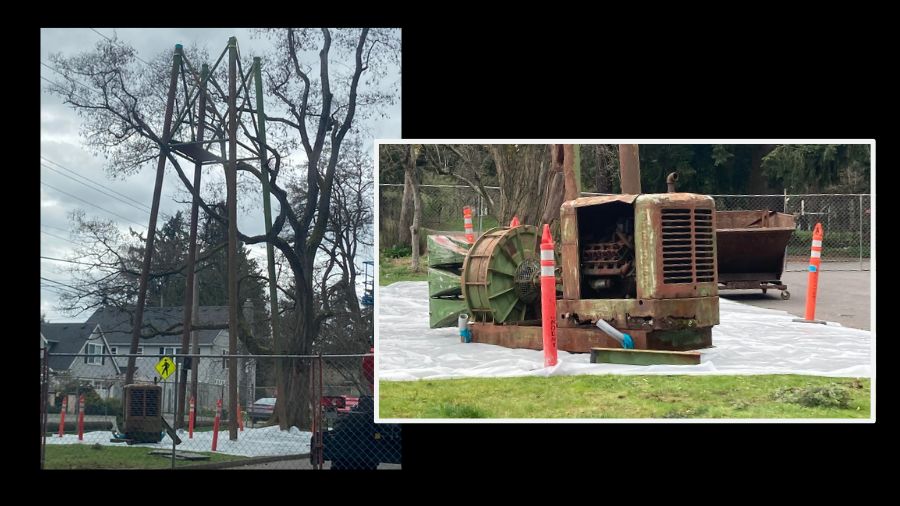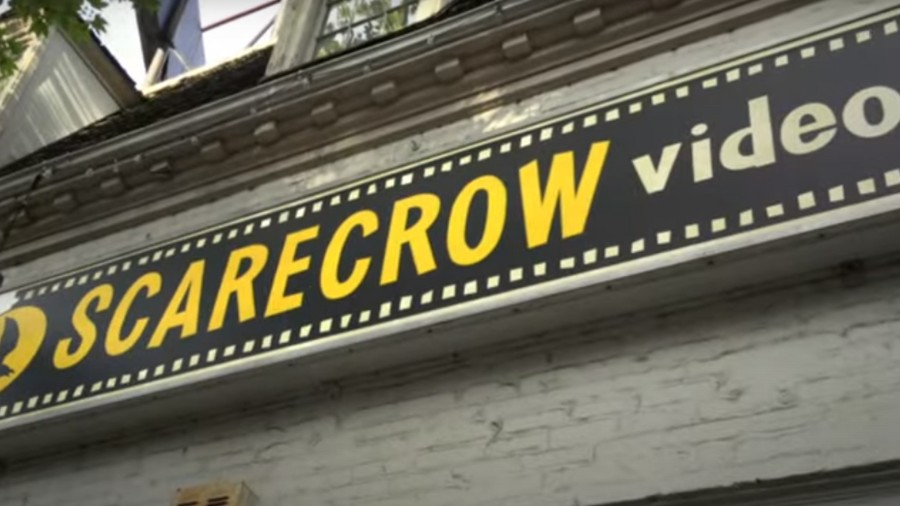Saving Washington’s heritage barns cuts across political divides
Aug 14, 2019, 8:06 AM | Updated: Aug 28, 2019, 9:32 am
Farming has been a part of life in what’s now Washington for about 200 years, and the state is dotted with old barns going back to the early 20th century, and even the 19th century. On just about any long drive through any one of our state’s 39 counties, it’s easy to catch a glimpse of at least a few cool old barns in various states of decay, and plenty that are well-maintained, too.
Jennifer Mortensen work for the statewide organization called the Washington Trust for Historic Preservation. They coordinate a state grant program in support of stabilization work for heritage barns, that provides matching funds to Washington residents looking to preserve their barns. The deadline for applying for grants is coming up in early fall.
So, why does it seem like everybody loves old barns?
“I’m not sure I can put an exact finger on it, but I think there’s a bit of nostalgia and romance even if you didn’t grow up on a farm,” said Mortensen. “I think seeing a big beautiful barn just represents the past in a way that some other historic buildings just don’t capture, because I think agriculture has changed so dramatically in the last few generations that these barns symbolize a way of life that not a lot of people experienced first-hand.”
Invasive blackberry species conquered Northwest a century ago
The Washington State Department of Archaeology and Historic Preservation launched the Heritage Barn program in 2007. Grants are offered every two years, and barn owners can apply for competitive matching funds to support up to half the total cost of projects like new foundations and new roofs.
That’s work that can help stabilize a structure that might be over 100 years old. Grants applications are reviewed and selected for funding by a committee, and typically range from $25,000 to $40,000.
The notion of “historic preservation” can sometimes be stereotyped as an urban or liberal thing, such as the recent efforts to preserve Seattle’s Showbox Market, or various other more quixotic efforts. But Mortensen says that the idea of preserving barns cuts across any real or imagined social or political divide here in the Evergreen State.
“We run into barn owners who wouldn’t consider themselves preservationists,” she said. “They say, ‘I’m not a historic preservationist, I wouldn’t identify with that title.’ And they say ‘I just want to save my grandfather’s barn,’ or ‘my family’s owned this property for generations.’ And I get to smile and say ‘that does make you a historic preservationist, that’s what it’s all about.’”
Heritage Barn grant applications are due October 23, but the first step before applying is adding a barn to a list the state maintains called the Heritage Barn Register by September 27.
Mortensen says that adding a barn to the register is not a rigorous process. Generally, a “heritage barn” should be more than 50 years old, and the more information that’s known about its construction, its history, and its various roles over the years, the better.
There are currently 751 barns listed on the register statewide. According to Mortensen, nobody’s certain how many barns could qualify to be on the register – something that would require a major statewide survey – but the list did recently pass an important milestone.
“A couple of years ago, we finally passed [having] at least one barn [listed] in every county,” Mortensen said. “There’s a couple of more rural counties that I’m sure have a lot more barns, but maybe just haven’t gotten the word about the register.”
Mortensen takes pains to point out that the Heritage Barn Register is entirely optional, and doesn’t create any restrictions for barn owners – only incentives and the potential for financial assistance.
“Some folks aren’t interested [in listing their barn on the register] and that’s fine, but I do try to let them know that it is honorary only, it’s non regulatory, so there’s no controls or restrictions that goes along with the register,” Mortensen said.
Ron Plucker lives in Touchet in Walla Walla County. His family has farmed in that area since his great-grandfather homesteaded there in 1870.
Plucker prepared a Heritage Barn grant application a few years ago. As part of the process, he did research and discovered that Lewis and Clark crossed what’s now the family farm in 1806 on their way back east, and wrote about it in their journal.
Plucker writes:
On April 30, 1806, on their return to the east after a winter on the coast, Lewis and Clark, Sacajawea, and the rest of the Corps of Discovery traversed through what is now the [Plucker] property on an old Indian road. Clark’s journal for the day’s travels states, ‘we took leave of these friendly honest people the Wollahwollahs … and … continued our rout[sic] through an open level sandy plain to a bold Creek [now called the Touchet River] 10 yds wide … there are many large banks of pure sand … drifted up by the wind to the height of 15 or 20 feet, lying in many parts of the plain through which we passed today.’ These banks of sand are still visible today, referred to by the Plucker family as ‘the dunes.’
Plucker also discovered the military history of what became the family farm:
In 1855, according to journals of the U.S. Army, on a hillside on the farm overlooking the Touchet River, Chief Peopeomoxmox of the Walla Walla tribe gave himself up under a white flag of truce to troops of the Oregon Mounted Volunteers to allow his encamped tribe time to escape. Days later, the soldiers and Indians began the four-day Battle of Walla Walla/Frenchtown, leading to the Chief’s unfortunate and infamous death.
Plucker was awarded a grant of roughly $35,000 to repair the siding on his family’s 100-year-old barn, as part of a massive project that also involved putting in a new foundation, restoring the original hardware and fittings, and repairing and rehanging original doors.
To hear Plucker describe it, the restoration work was intense and all-consuming.
Forgotten history of Seattle’s longtime fireworks factory
“Weekends we’d have maybe at least five or six people in the family working. I’d go out after work [and] pull nails, trying to figure out okay exactly what do we do now, what do we do when,” Plucker said. “[We were] measuring of boards and nailing them in, and then, as we went up, we got really high – ‘What do we do now?’ – you have to rent the right equipment.”
But restoring the old barn also had a huge and unexpected positive impact on his whole family.
“We did this [work] for almost three months straight and at the end of it, it was surreal,” Plucker said. “It was such an accomplishment and it brought the family together. It was just an awesome experience for that, just for bringing the family together and working on a common project.”
Ron Plucker says the restored barn is now the “centerpiece” of the farm where the family grows about 400 acres of wheat.
The Washington Trust will hold heritage barn workshops in Puyallup on Monday, August 26, and Mount Vernon on Thursday, September 26.
Maybe, in what sometimes seems to be an otherwise divided age, preserving heritage barns is one thing that we can all agree on.

